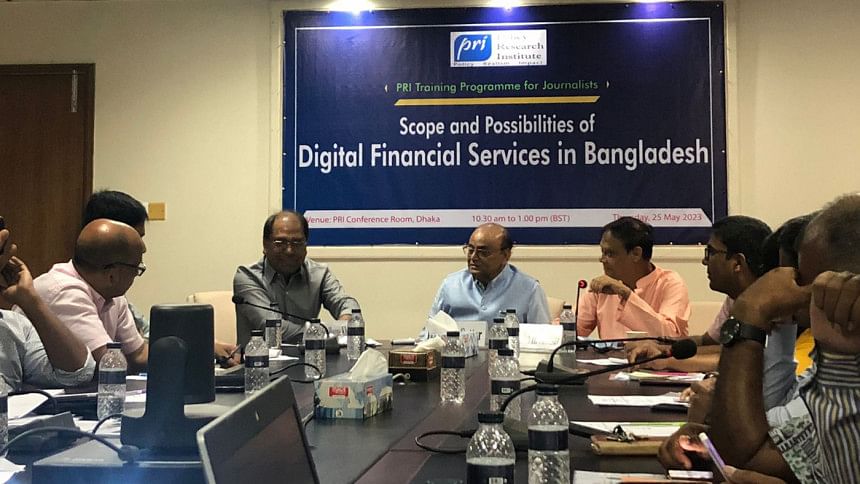67% homes still rely on microcredit: study

Almost two-thirds of households in a survey were found to be mostly dependent on microcredit to avoid hassles of availing conventional bank loans.
They prefer the microcredit even though the interest rate goes up by almost threefold to reach 24 per cent, said the survey conducted among 1,000 households and 400 enterprises across the country.
Of the respondents, 37.5 per cent had taken loans and of them, around 67 per cent were from microcredit institutions while the rest from conventional banks.
The survey was conducted by the Policy Research Institute of Bangladesh (PRI), which revealed the preliminary analysis at its training programme in Dhaka yesterday.
Nowadays formal financial institutions such as banks, non-bank financial institutions (NBFIs) and some mobile financial service (MFS) providers are providing loans at much lower interest rates, said the analysis.
However, rural people are taking loans at a very high interest rate of around 23 per cent to 24 per cent or above, it said. Those who availed loans were mostly unable to meet criteria of banks, including managing collateral, it said.
There is a potential for digital financial services to replace microcredit institutions as a source of financing in the rural economy, said Bazlul Haque Khondker, director of the PRI.
There is a need for financing the rural cottage, micro and small firms for their business expansion and sustainability, he said.
"If MFS and formal financial sources can meet that demand, there is a huge potential for growth in the rural economy," he said.
The survey also found that around 91 per cent of the entrepreneur respondents had to start their businesses with personal or family savings, or by borrowing from friends or family, without any financial support from formal financial sources.
Around 82 per cent of the respondents stated that they required additional financial support for future growth, read the survey.
Access to finance remains a significant constraint to sustained development in these regions as the microcredit institutions are charging high interest rates, said Ahsan H Mansur, executive director of the PRI, at the event.
"In light of this, the agent banking model has emerged as a vital solution, offering cost-efficient financial services to underbanked communities across the country," he said.
Mansur highlighted the success of agent banking, emphasising its presence in rural areas where agents, who are community members, build trust with customers.
Currently, the model has reached an impressive 16.5 million clients, a testament to its effectiveness in providing financial services to previously underserved regions, he said.
"During the pandemic, when traditional banks faced limitations, agent banking outlets played a crucial role in maintaining banking operations," he said.
Mansur also saw challenges for agent banking in the medium to long term. Only those which will be able to compete and adapt with new technologies will be able to survive, he said.
Zaidi Sattar, chairman of the PRI, delivered the welcome remarks.

 For all latest news, follow The Daily Star's Google News channel.
For all latest news, follow The Daily Star's Google News channel. 



Comments